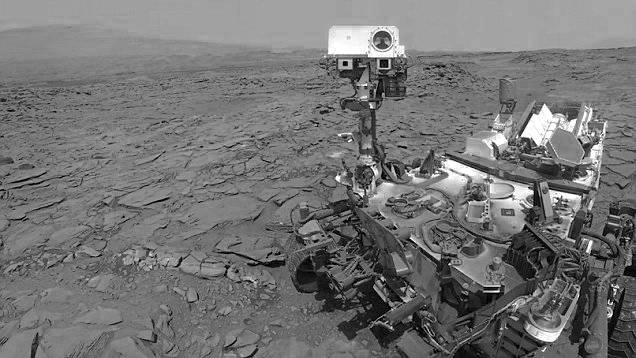Curiosity compels us to discover
There are many valid reasons to continue exploring the Universe
The astronaut stepped out of the spacecraft onto the gray soil of the moon. Back on earth, people sat in their homes at the edge of their seats, staring eagerly into the TV as they cheered him on. Neil Armstrong was one of the first to set foot on ground that wasn’t of the earth, and he certainly shouldn’t be the last.
Some may say that space exploration is unimportant and that the funding going into space exploration could be put to better use: The US has domestic problems to tend to, the human race as a whole needs to settle their differences first, etc.
However, there is more than enough reason to say that finding what is out there beyond our small planet is paramount, and those reasons are not just for the sake of nuclear-war precautions or resource depletion.
The understanding of the universe around humanity and the continuation of space travel could lead to scientific breakthroughs here on Earth; in other words, the technology we have now could be advanced even further by space exploration, as it already has. In fact, modern technology — such as prosthetic limb — may not even exist today if it wasn’t for NASA.
“NASA’s innovations into shock-absorption materials coupled with robotic and extravehicular activities are being adapted to create more functionally dynamic artificial limbs,” jpl.nasa.gov states.
Not only can space exploration continue to advance today’s technology, but it can also advance studies in medicine and human health. Scientists on the International Space Station (ISS) have developed new ways of handling surgical procedures, especially those involving tumors caused by radiation exposure.
“Research on ISS has allowed for innovations in surgical performance through the world’s first robotic technology capable of performing surgery inside MRI machines. This technology is making difficult brain tumor surgeries easier and impossible surgeries possible,” nasa.gov states.
Brain tumors caused by radiation exposure in space may be a con to space exploration, but if scientists are able to treat those tumors, scientists may even be able to completely prevent them from growing in the future.
Then there is, of course, the very real possibility of the world ending; it is inevitable. Whether it be from nuclear war or the earth colliding with another object from outer space, humanity will end if no measure is taken to ensure its survival outside of earth.
“H. G. Wells said many years ago that ‘Human history becomes more and more a race between education and catastrophe.’ We are still in that race today, and surely an international cooperative venture into space — with all that implies — strikes a blow against catastrophe and a victory for civilization,” NASA’s Chief Historian Steven J. Dick wrote.
Science is a process of trial and error, and no part of it should be disregarded as impossible. Of course, there will be problems that arise, and the unknown and mysterious aspects of space may be intimidating — black holes for one — but pushing forward may yield promising results, just as it has in the past. What is seen as impossible today may very well be achievable tomorrow.



